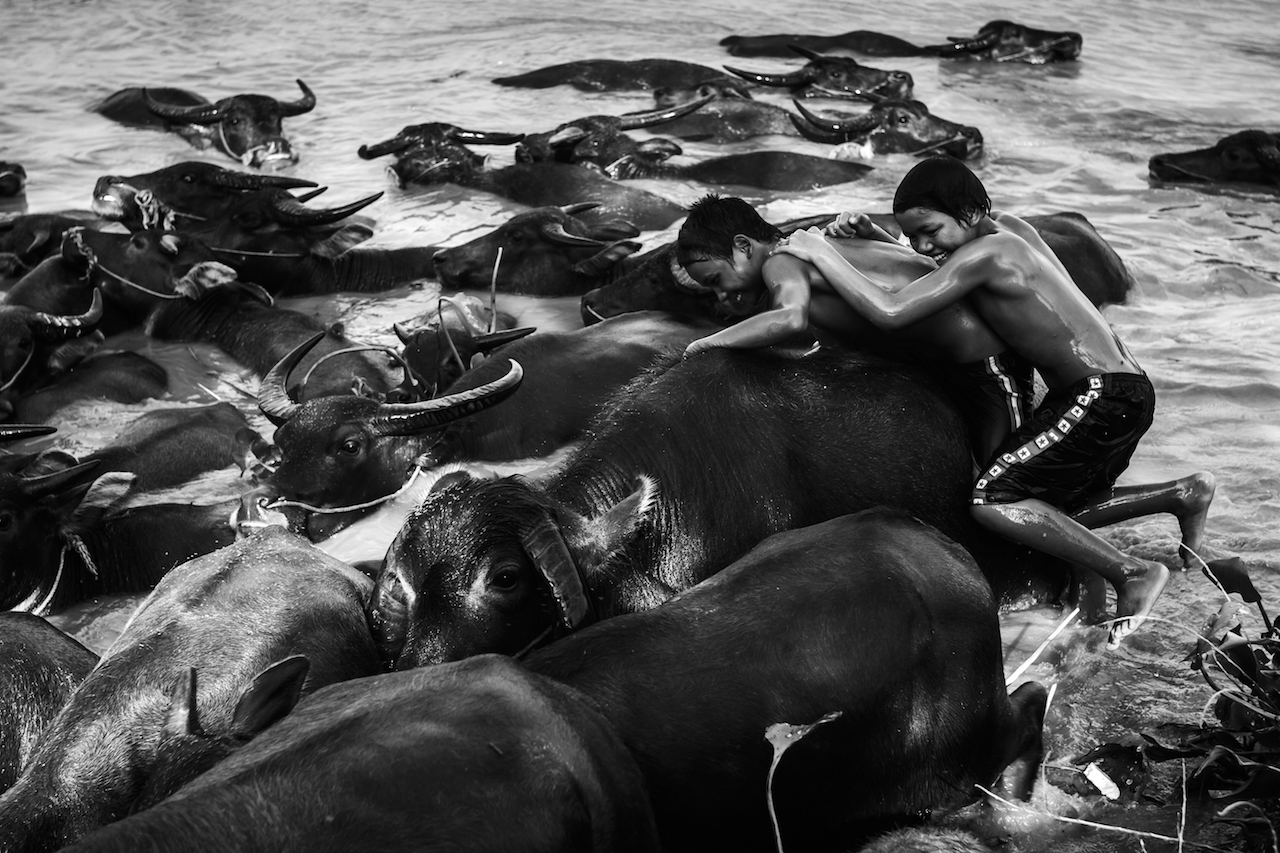“Water Buffalo Tale”

In the spring of 1975, my grandmother boarded a one-way flight from Saigon to California. She joined a massive wave of postwar refugees desperate to escape Vietnam’s newly communist government; over the next two decades, millions like her would scatter and resettle across the globe. I wrote this poem trying to fathom the meaning and impact of relocation on such an epic scale. My portrait of the Willards is admittedly a touch sarcastic—I was picturing the white-picket realm of Donna Reed and Ward Cleaver, where an Asian face in the neighborhood would be just about as unexpected as a colossal bovine on the front porch—but I also see sincere pathos in Mr. Willard’s attempt to restore familiar logic to his corner of the world. I close the poem with an unresolved silence because while I think that Americans today acknowledge significant debt to all our combined histories of border-crossing and culture-blending, we still haven’t figured out how to shed our reliance on binary conceptions of us and them.
Structurally, I aimed to mirror the singsong cadence of Vietnamese folk poetry, which involves an intricate pattern of syllable count, internal rhyme, and tonal symmetry. The water buffalo I borrowed from Vietnamese tradition as well; it is both a central figure in the work of rice-farming and an iconic emblem of the rural landscape in times of peace.
Water Buffalo Tale
Mrs. Willard, expecting catalogs, fainted.
Hearing thuds, Mags & Benno ran to the porch.
Their mother was woozy, breathing damply
in the shade of the beast’s ponderous tongue.
Mags & Benno, industrious, mobilized quickly:
three-dollar rides for the neighborhood kids.
In the breakfast nook, icepack pressed to forehead,
an urgent Mrs. dialed Mr. at work.
The backyard flooded with goggle-eyed youngsters.
One boy cried, Water buffalo—from my country, Vietnam!
Whatever, Mags & Benno said, it’s ours now.
The beast shrugged each cheering charge to the ground.
Half-past ten, Mags & Benno dreaming new profit,
Mr. marched out in slippers to untie the beast.
He led it briskly to the far edge of suburbia
where the asphalt faded to ragweed and dirt.
Go on now, urged Mr., return to your jungle.
He pushed the bony rump toward a mideastern star.
But the beast stood there stoic, leaning upwind,
returning only a dark glassy blink.
Don’t you hear? Mr. yelled, losing his patience,
this is no proper home, this is no proper life!
No answer, no movement: no sudden respect
for kingdom or phylum or season or sense.
So they sat, beast and man, biding the impasse
as stars swiveled tracks through the unanchored night.
The margins of memory dangled around them
like scattered tinsel in the sallow fields.
—
 Kim-An Lieberman holds a Ph.D. in Vietnamese American literature from the University of California-Berkeley. Her poetry has appeared in Prairie Schooner, Quarterly West, ZZYZZYVA, and Threepenny Review. She teaches high-school English in Seattle.
Kim-An Lieberman holds a Ph.D. in Vietnamese American literature from the University of California-Berkeley. Her poetry has appeared in Prairie Schooner, Quarterly West, ZZYZZYVA, and Threepenny Review. She teaches high-school English in Seattle.
“Water Buffalo Tale” appears in the Spring-Summer 2007 v2.n1 issue of Poetry Northwest —Subscribe today
